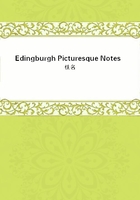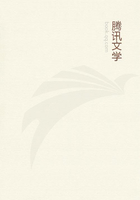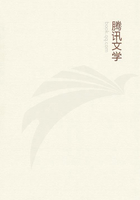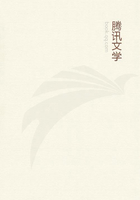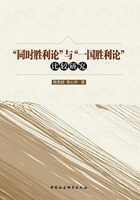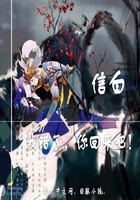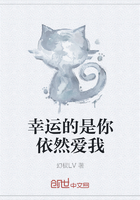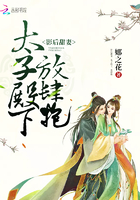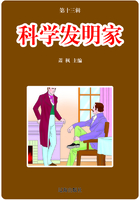Often his talk was sweet and racy with old-fashioned phrases; the talk of a man who loved books and drew habitual breath in an atmosphere of fine thought. Next to Charles Lamb, but at a convenable distance, Izaak Walton was Tom Folio's favorite. His poet was Alexander Pope, though he thought Mr. Addison's tragedy of "Cato" contained some proper good lines. Our friend was a wide reader in English classics, greatly preferring the literature of the earlier pe-riods to that of the Victorian age. His smiling, tenderly expressed disapprobation of various modern authors was enchanting. John Keats's verses were monstrous pretty, but over-orna-mented. A little too much lucent syrup tinct with cinnamon, don't you think? The poetry of Shelley might have been composed in the moon by a slightly deranged, well-meaning per-son. If you wanted a sound mind in a sound metrical body, why there was Mr. Pope's "Essay on Man." There was something winsome and by-gone in the general make-up of Tom Folio.
No man living in the world ever seemed to me to live so much out of it, or to live more com-fortably.
At times I half suspected him of a conva-lescent amatory disappointment. Perhaps long before I knew him he had taken a little senti-mental journey, the unsuccessful end of which had touched him with a gentle sadness. It was something far off and softened by memory. If Tom Folio had any love-affair on hand in my day, it must have been of an airy, platonic sort --a chaste secret passion for Mistress Peg Wof-fington or Nell Gwyn, or possibly Mr. Wal-ler's Saccharissa.
Although Tom Folio was not a collector--that means dividends and bank balances--he had a passion for the Past and all its belongings, with a virtuoso's knowledge of them. A fan painted by Vanloo, a bit of rare Nankin (he had caught from Charles Lamb the love of old china), or an undoctored stipple of Bartolozzi, gave him delight in the handling, though he might not aspire to ownership. I believe he would will-ingly have drunk any horrible decoction from a silver teapot of Queen Anne's time. These things were not for him in a coarse, materialistic sense; in a spiritual sense he held possession of them in fee-simple. I learned thus much of his tastes one day during an hour we spent together in the rear showroom of a dealer in antiquities.
I have spoken of Tom Folio as lonely, but I
am inclined to think that I mis-stated it. He had hosts of friends who used to climb the rather steep staircase leading to that modest third-story front room which I have imagined for him--a room with Turkey-red curtains, I like to believe, and a rare engraving of a scene from Mr. Ho-garth's excellent moral of "The Industrious and Idle Apprentices" pinned against the chimney breast. Young Chatterton, who was not always the best of company, dropped in at intervals.
There Mr. Samuel Pepys had a special chair reserved for him by the window, where he could catch a glimpse of the pretty housemaid over the way, chatting with the policeman at the area railing. Dr. Johnson and the unworldly author of "The Deserted Village" were frequent visit-ors, sometimes appearing together arm-in-arm, with James Boswell, Esq., of Auchinleck, fol-lowing obsequiously behind. Not that Tom Folio did not have callers vastly more aristo-cratic, though he could have had none plea-santer or wholesomer. Sir Philip Sidney (who must have given Folio that copy of the "Arca-dia"), the Viscount St. Albans, and even two or three others before whom either of these might have doffed his bonnet, did not disdain to gather round that hearthstone. Fielding, Smollett, Sterne, Defoe, Dick Steele, Dean Swift--there was no end to them! On certain nights, when all the stolid neighborhood was lapped in slumber, the narrow street stretching beneath Tom Folio's windows must have been blocked with invisible coaches and sedan-chairs, and illuminated by the visionary glare of torches borne by shadowy linkboys hurrying hither and thither. A man so sought after and companioned cannot be described as lonely.
My memory here recalls the fact that he had a few friends less insubstantial--that quaint anatomy perched on the top of a hand-organ, to whom Tom Folio was wont to give a bite of his apple; and the brown-legged little Neapolitan who was always nearly certain of a copper when this multi-millionaire strolled through the slums on a Saturday afternoon--Saturday probably being the essayist's pay-day. The withered woman of the peanut-stand on the corner over against Faneuil Hall Market knew him for a friend, as did also the blind lead-pencil merchant, whom Tom Folio, on occasions, safely piloted across the stormy traffic of Dock Square. No-blesse oblige! He was no stranger in those purlieus. Without designing to confuse small things with great, I may say that a certain strip of pavement in North Street could be pointed out as Tom Folio's Walk, just as Addison's Walk is pointed out on the banks of the Cher-well at Oxford.
I used to observe that when Tom Folio was not in quest of a print or a pamphlet or some such urgent thing, but was walking for mere recreation, he instinctively avoided respectable latitudes. He liked best the squalid, ill-kept thoroughfares shadowed by tall, smudgy tene-ment-houses and teeming with unprosperous, noisy life. Perhaps he had, half consciously, a sense of subtle kinship to the unsuccess and cheerful resignation of it all.
Returning home from abroad one October morning several years ago, I was told that that simple spirit had passed on. His death had been little heeded; but in him had passed away an intangible genuine bit of Old Boston--as genuine a bit, in its kind, as the Autocrat himself --a personality not to be restored or replaced.
Tom Folio could never happen again!
Strolling to-day through the streets of the older section of the town, I miss many a venerable landmark submerged in the rising tide of change, but I miss nothing quite so much as I do the sight of Tom Folio entering the doorway of the Old Corner Bookstore, or carefully taking down a musty volume from its shelf at some melan-choly old book-stall on Cornhill.

